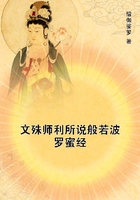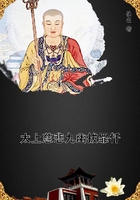At length a change took place. Lewis the Fourteenth had, from an early age, regarded the Calvinists with an aversion at once religious and political. As a zealous Roman Catholic, he detested their theological dogmas. As a prince fond of arbitrary power, he detested those republican theories which were intermingled with the Genevese divinity. He gradually retrenched all the privileges which the schismatics enjoyed. He interfered with the education of Protestant children, confiscated property bequeathed to Protestant consistories, and on frivolous pretexts shut up Protestant churches. The Protestant ministers were harassed by the tax gatherers. The Protestant magistrates were deprived of the honour of nobility. The Protestant officers of the royal household were informed that His Majesty dispensed with their services. Orders were given that no Protestant should be admitted into the legal profession. The oppressed sect showed some faint signs of that spirit which in the preceding century had bidden defiance to the whole power of the House of Valois. Massacres and executions followed. Dragoons were quartered in the towns where the heretics were numerous, and in the country seats of the heretic gentry; and the cruelty and licentiousness of these rude missionaries was sanctioned or leniently censured by the government. Still, however, the edict of Nantes, though practically violated in its most essential provisions, had not been formally rescinded; and the King repeatedly declared in solemn public acts that he was resolved to maintain it. But the bigots and flatterers who had his ear gave him advice which he was but too willing to take. They represented to him that his rigorous policy had been eminently successful, that little or no resistance had been made to his will, that thousands of Huguenots had already been converted, that, if he would take the one decisive step which yet remained, those who were still obstinate would speedily submit, France would be purged from the taint of heresy, and her prince would have earned a heavenly crown not less glorious than that of Saint Lewis. These arguments prevailed. The final blow was struck. The edict of Nantes was revoked; and a crowd of decrees against the sectaries appeared in rapid succession. Boys and girls were torn from their parents and sent to be educated in convents. All Calvinistic ministers were commanded either to abjure their religion or to quit their country within a fortnight. The other professors of the reformed faith were forbidden to leave the kingdom; and, in order to prevent them from making their escape, the outports and frontiers were strictly guarded. It was thought that the flocks, thus separated from the evil shepherds, would soon return to the true fold. But in spite of all the vigilance of the military police there was a vast emigration. It was calculated that, in a few months, fifty thousand families quitted France for ever. Nor were the refugees such as a country can well spare. They were generally persons of intelligent minds, of industrious habits, and of austere morals. In the list are to be found names eminent in war, in science, in literature, and in art. Some of the exiles offered their swords to William of Orange, and distinguished themselves by the fury with which they fought against their persecutor. Others avenged themselves with weapons still more formidable, and, by means of the presses of Holland, England, and Germany, inflamed, during thirty years, the public mind of Europe against the French government. A more peaceful class erected silk manufactories in the eastern suburb of London. One detachment of emigrants taught the Saxons to make the stuffs and hats of which France had hitherto enjoyed a monopoly. Another planted the first vines in the neighbourhood of the Cape of Good Hope.12In ordinary circumstances the courts of Spain and of Rome would have eagerly applauded a prince who had made vigorous war on heresy. But such was the hatred inspired by the injustice and haughtiness of Lewis that, when he became a persecutor, the courts of Spain and Rome took the side of religious liberty, and loudly reprobated the cruelty of turning a savage and licentious soldiery loose on an unoffending people.13 One cry of grief and rage rose from the whole of Protestant Europe. The tidings of the revocation of the edict of Nantes reached England about a week before the day to which the Parliament stood adjourned. It was clear then that the spirit of Gardiner and of Alva was still the spirit of the Roman Catholic Church. Lewis was not inferior to James in generosity and humanity, and was certainly far superior to James in all the abilities and acquirements of a statesman.
Lewis had, like James, repeatedly promised to respect the privileges of his Protestant subjects. Yet Lewis was now avowedly a persecutor of the reformed religion. What reason was there, then, to doubt that James waited only for an opportunity to follow the example? He was already forming, in defiance of the law, a military force officered to a great extent by Roman Catholics. Was there anything unreasonable in the apprehension that this force might be employed to do what the French dragoons had done?
James was almost as much disturbed as his subjects by the conduct of the court of Versailles. In truth, that court had acted as if it had meant to embarrass and annoy him. He was about to ask from a Protestant legislature a full toleration for Roman Catholics.
Nothing, therefore, could be more unwelcome to him than the intelligence that, in a neighbouring country, toleration had just been withdrawn by a Roman Catholic government from Protestants.















